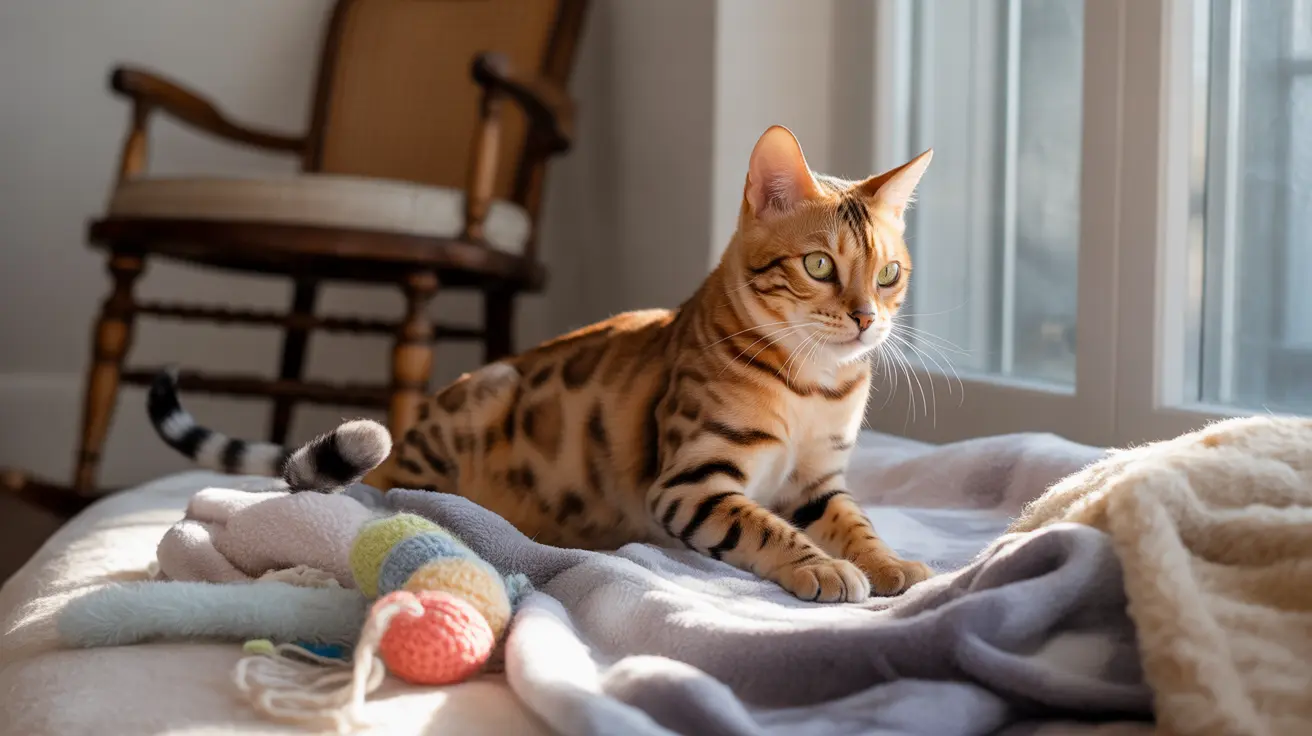Understanding cat pregnancy is crucial for pet owners, whether you're breeding cats intentionally or dealing with an unexpected pregnancy. This comprehensive guide will walk you through everything you need to know about feline pregnancy, from early signs to delivery.
Cats typically carry their kittens for approximately 63-65 days, making the entire pregnancy journey relatively brief but packed with important developments. Let's explore the timeline, signs, and essential care requirements for expecting feline mothers.
How Long Is a Cat Pregnant?
The average cat pregnancy, or gestation period, lasts between 63-65 days from conception. This timeline can occasionally extend from 60 to 70 days, but most healthy pregnancies fall within the standard two-month window. This relatively short gestation period means that changes happen quickly, and proper monitoring is essential.
The pregnancy can be broken down into three distinct trimesters, each lasting approximately 21 days:
- First trimester (Days 1-21): Early development and implantation
- Second trimester (Days 21-42): Rapid fetal growth and visible changes
- Third trimester (Days 42-63): Final development and preparation for birth
How to Know If a Cat Is Pregnant
Detecting early signs of cat pregnancy can be challenging, but several key indicators typically emerge:
Early Signs (Weeks 1-3)
- Subtle behavioral changes
- Slightly increased appetite
- "Pinking up" of nipples around week 3
- Possible morning sickness
Middle Stage Signs (Weeks 3-6)
- Noticeable weight gain
- Enlarged and more prominent abdomen
- Increased appetite
- More affectionate behavior
- Darker, larger nipples
Late Pregnancy Signs (Weeks 6-9)
- Significant abdominal swelling
- Visible kitten movement
- Nesting behavior
- Increased grooming
- Milk production beginning around week 8
Essential Care for Pregnant Cats
Proper care during pregnancy is crucial for both mother and kittens:
Nutrition
- Increase food intake gradually
- Provide high-quality kitten food
- Ensure constant access to fresh water
- Consider veterinary supplements if recommended
Environment
- Create quiet, safe nesting areas
- Maintain regular routine to minimize stress
- Keep litter box clean and easily accessible
- Provide comfortable resting spots
Veterinary Care
- Schedule regular check-ups
- Avoid unnecessary medications
- Discuss vaccination timing with your vet
- Plan for potential emergencies
Preparing for Delivery
As your cat approaches her due date, watch for these signs of impending labor:
- Temperature drop below 100°F (12-24 hours before delivery)
- Decreased appetite
- Increased restlessness
- Intense nesting behavior
- Frequent grooming of the genital area
Frequently Asked Questions
How can I tell if my cat is pregnant?
Look for signs such as enlarged nipples, increased appetite, weight gain, and behavioral changes. A veterinarian can confirm pregnancy through physical examination, ultrasound, or X-rays after the first few weeks.
How long does a typical cat pregnancy last?
A typical cat pregnancy lasts 63-65 days (approximately 9 weeks) from conception to delivery. This can vary slightly, with a normal range of 60-70 days.
What are the early signs of cat pregnancy?
Early signs include "pinking up" of nipples, mild morning sickness, increased appetite, and subtle behavioral changes like increased affection or calmness.
How do I care for a pregnant cat to ensure a healthy pregnancy?
Provide high-quality nutrition, maintain a stress-free environment, ensure regular veterinary check-ups, and create comfortable nesting areas. Avoid medications unless prescribed by a veterinarian.
Can a cat become pregnant while still nursing a previous litter?
Yes, cats can become pregnant while nursing kittens. They can go into heat as early as 4 weeks after giving birth, even while still lactating.
Understanding your cat's pregnancy journey helps ensure the best possible outcome for both mother and kittens. Always consult with a veterinarian for personalized advice and care recommendations throughout the pregnancy.






